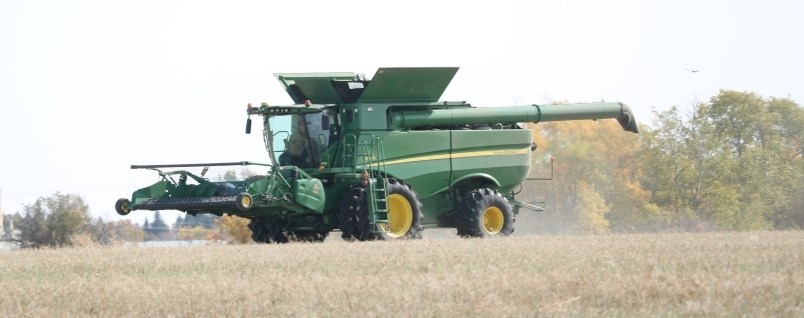Under normal conditions, or at least as close to normal as is reasonable, that might be true.
But, ultimately, Mother Nature remains the critical factor in farm production, and that has been particularly evident in 2021.
On the Canadian Prairies the weather played havoc with yields this year as moisture was typically in short supply during the growing season.
The lack of moisture had impact beyond yields too.
The oil content, the key component in canola, was also down in many cases, and that was not good news for the significant crush sector on the Prairies.
Cereal kernels were also, in at least some cases, less plump than desired, a situation which again can be a processing issue – for example turning oats into oatmeal for our breakfasts.
The impact of weather impacted crops and can tighten world stocks which can mean price jumps of course which is good for producers, but it also threatens supplies. There is a human side to tight supplies with poor countries hit hard to afford food grains for their people.
In the case of wheat world stocks may well be tightening further too, as the harvest in Australia, another major producer of wheat for export, is being hit hard by too much rain.
Production in Ukraine is also forecast to be lower, another contributor to potential tight supplies.
The situation might help sustain current high wheat prices, but it also threatens foods security too.
Wheat ending stocks for major exporters has been declining for a half decade and has dropped below 50 million tonnes for the first time in years.
Closer to home we also see how weather can potentially hit farmers in a different way too.
The flooding in British Columbia is a horror story for producers there, with livestock directly impacted now, and the effect on land in terms of production yet to be determined.
For farmers on the Prairies there is also concerns the B.C. flooding might impact the ability of grain from this region to make its way to Pacific coast ports.
Certainly the priority of transportation at present must be the victims of the flooding.
But, what impact might the flooding have on rail roadbeds moving forward?
So, while farmers keep one eye on developing tech, the other eye must still be on world weather, which ultimately impacts production the most.




